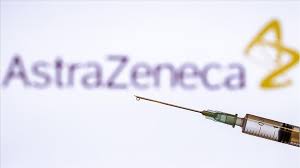Reports of post-vaccine adverse events on the continent are limited to mild or moderate side effects.
Is the AstraZeneca vaccine more effective in Africa? If no study allows, for the moment, to offer an answer to this question, it must be noted that “no case of blood clotting disorder has been reported after vaccination,” the World Health Organization (WHO) said in a statement on Friday.
There have been reports of rare blood clotting disorders in people who received the AstraZeneca vaccine in several European countries, and the Johnson & Johnson vaccine in the United States.
This has led countries such as Sweden to temporarily suspend the use of the vaccine and then reverse this decision, while reserving it for people over 65 years of age.
WHO’s Global Advisory Committee on Vaccine Safety said it is carefully evaluating reports about the Johnson & Johnson vaccine.
For the AstraZeneca vaccine, the committee’s review found a plausible causal relationship between the vaccine and the occurrence of blood clots with low platelet counts, although this remains to be confirmed, the WHO statement said.
To date, more than 200 million people have received doses of the AstraZeneca vaccine worldwide.
And according to the WHO, the number of cases of blood clots and low platelet counts are extremely low – less than 200 cases have been reported so far.
“While continuing to evaluate the vaccines, WHO considers that, based on current knowledge, the benefits of the AstraZeneca and Johnson & Johnson vaccines far outweigh the risks,” the UN health agency said.
In Africa, AstraZeneca vaccine doses were distributed to 36 countries through the COVAX mechanism.
COVAX is a vaccine procurement platform co-led by the Coalition for Epidemic Preparedness Innovations (CEPI), Gavi the Vaccine Alliance and WHO, in partnership with UNICEF.
A total of 45 African countries have already launched their COVID-19 vaccination campaigns.
More than two-thirds of the doses administered have been in 10 countries with dwindling or depleted stocks, the statement said.
“Deep inequalities remain in access to COVID-19 vaccines around the world. On average, one in four people in high-income countries have already received a dose of COVID-19 vaccine, compared to one in 500 people in lower-income countries, including several African countries,” the WHO Regional Director for Africa, Dr Matshidiso Moeti, was quoted as saying.
ARD/cgd/lb/as/APA


